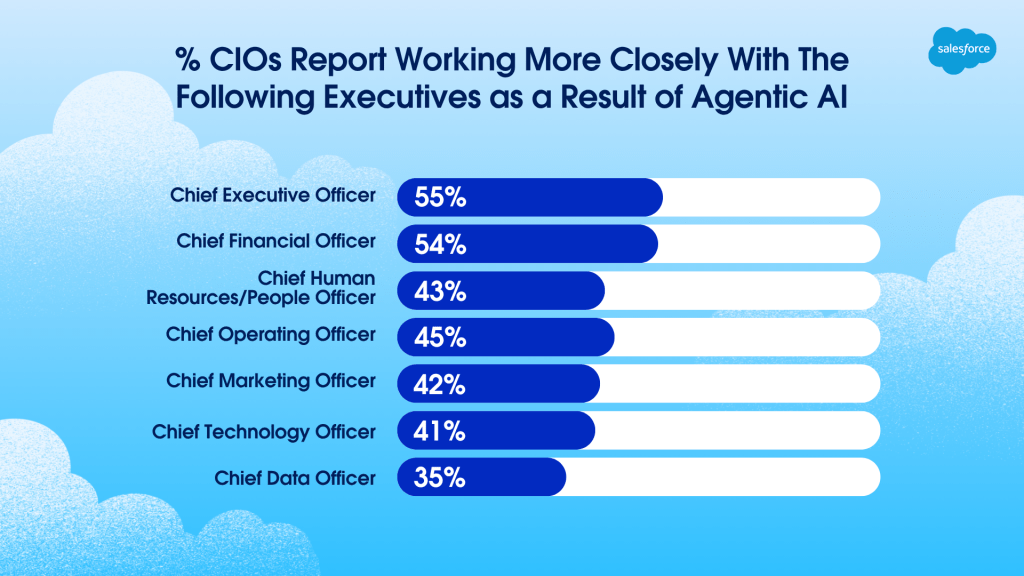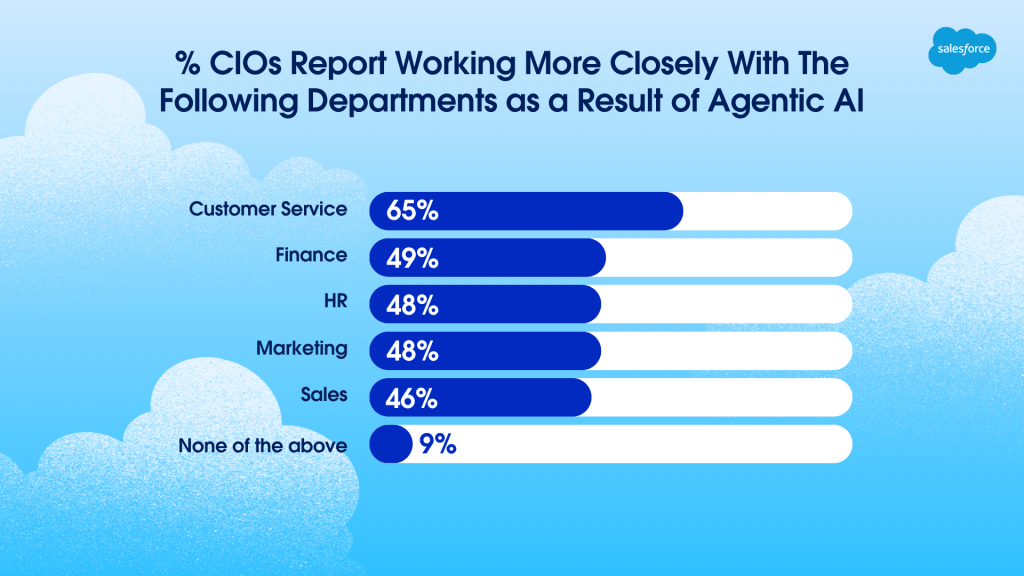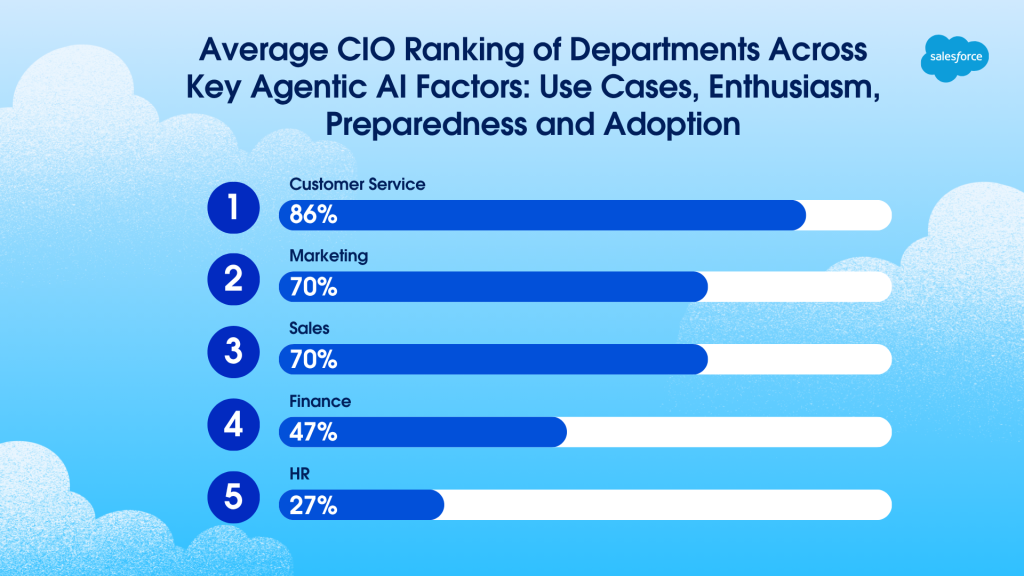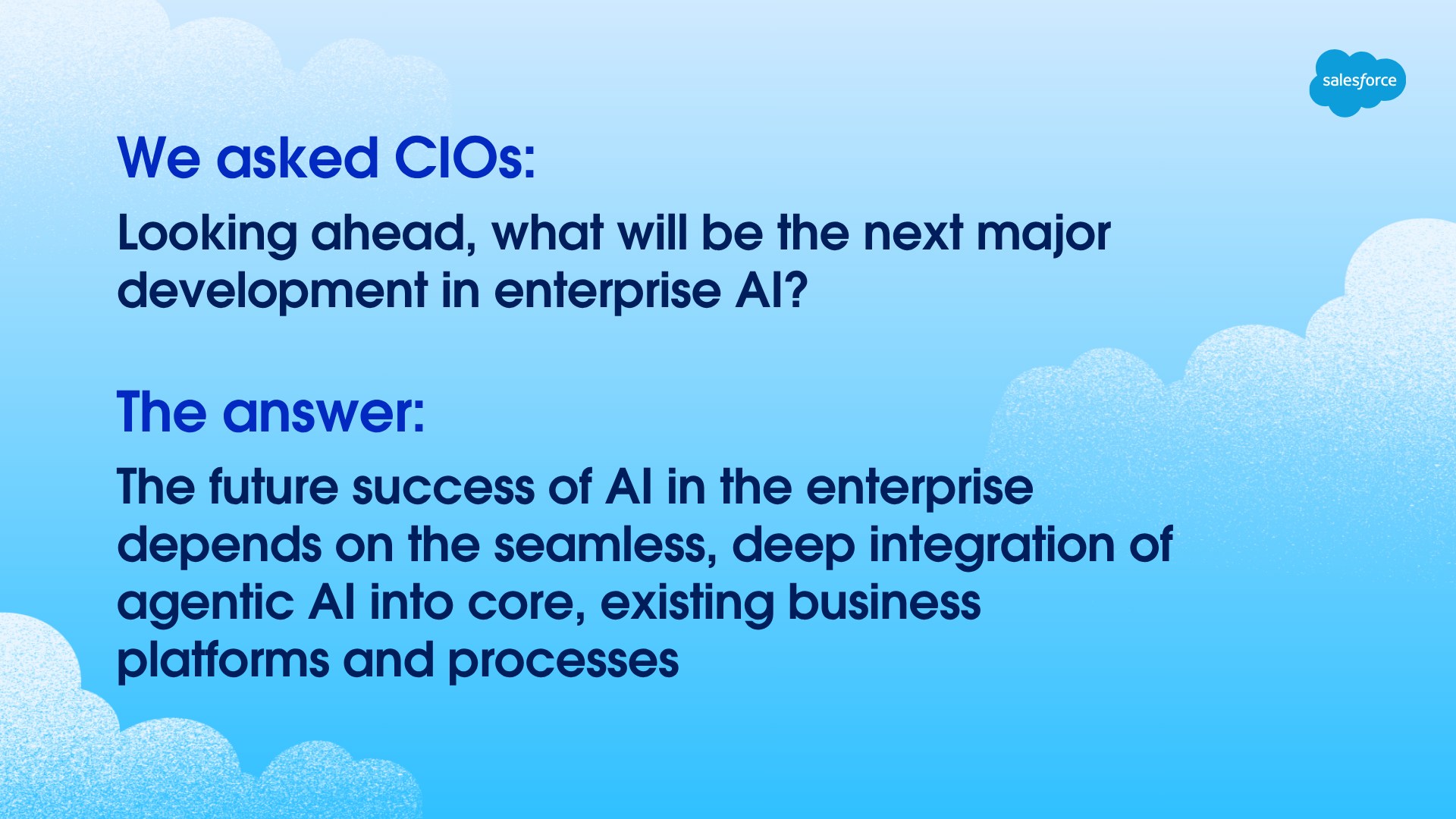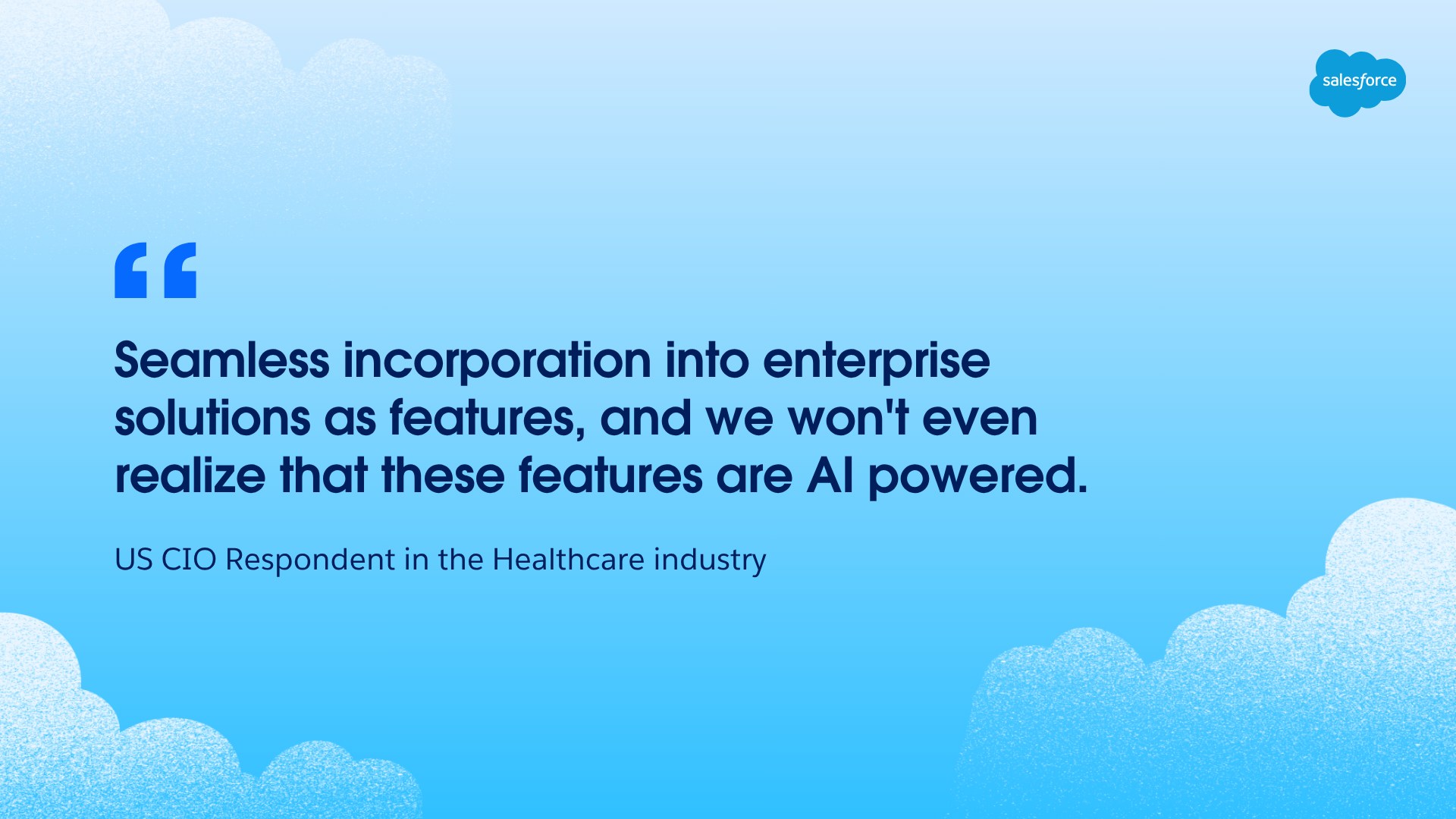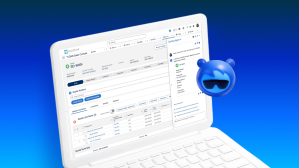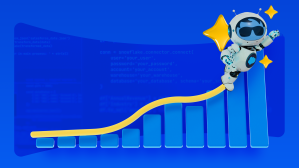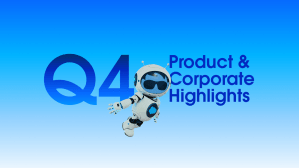AI implementation has surged 282% since last year, according to Salesforce’s second annual CIO study. In 2024, CIOs were still fixing data gaps, strengthening security, and running early pilots. This year, they’ve broken past that phase and are scaling AI across their organizations. The era of experimentation is over; the era of scale is here.
To keep up, CIOs say the skills required to lead this shift have changed. Technical expertise is still critical, but leadership, storytelling, and change management now determine whether AI adoption sticks. And this isn’t preference — 94% of CIOs say scaling AI is forcing them to expand their skill sets.
This wave of enterprise adoption is also expanding the CIO’s role. CIOs have long partnered with the CEO, but as AI scales, that partnership is broadening — from preparing the tech to steering organizationwide change. CIOs are now aligning executives, shaping adoption strategies, and ensuring AI is embedded in everyday work.
Their technical priorities have evolved as well. Last year’s work centered on data cleanup, governance, security, and legacy systems. This year, CIOs are focused on building agentic workflows, integrating AI into core platforms, and scaling AI safely across the business.
CIOs are also spending more time with customer-facing teams — especially service — where AI agents already show measurable impact. And consistent with last year’s concerns around data and security, CIOs say they’re leaning more heavily on trusted platforms and unified systems to ensure their AI investments scale securely and responsibly.
“CIOs are turning AI ambition into action and scaling agentic AI in real, measurable ways,” said Salesforce CIO Daniel Shmitt. “Embedding AI into the flow of work and building trust into every step helps everyone move faster and with more confidence.”
Customer Impact
Detailed Findings:
CIOs move from hesitation to hands-on deployment
- Last year, 43% of CIOs felt they were ahead of competitors on AI. This year, 61% say this.
- Full AI implementation has increased 282% since 2024, from 11% to 42%.
- AI budget has nearly doubled, with CIOs saying they are dedicating 30% of this budget to agentic AI.
- 96% of CIOs say their company either currently uses or plans to use agentic AI in the next two years.
Confidence rises across the enterprise
- 75% of CIOs feel more confident in their role now than they did a year ago.
- 97% of CIOs say they know more about AI now than they did a year ago.
- CIOs rate their companies significantly good but higher on various AI factors this year compared with 2024, including:
- Improved employee skill sets (+43%)
- Ability to identify success metrics/KPIs for AI (+33%)
CIOs emerge as change leaders — not just tech leaders
- CIOs report working most closely with CEOs (over other C-suite execs) as agentic AI has led to an increase in CIO scope and importance.
- 94% of CIOs say AI agents have increased the need to expand their skill sets.
- CIOs are building unexpected skills in the workplace – focusing on soft versus hard technical skills.
- Top skills CIOs have improved to prepare for agentic AI:
- 61% of CIOs have personally improved their leadership skills.
- 57% of CIOs have personally improved their storytelling, narrative-building skills.
- 55% of CIOs have personally improved their change management and communication skills.
- Top skills CIOs have improved to prepare for agentic AI:
Service becomes the proving ground for AI
- 65% of CIOs say they are working more closely with their customer service organization as a result of agentic AI – more than all other groups.
- CIOs rank customer service number one for best use cases, most enthusiasm, most prepared, and highest adoption for agentic AI.
- This finding is consistent with Salesforce’s latest Agentic Enterprise Index. According to Agentforce usage data, the average number of customer service conversations led by an agent grew 22 times in the first half of 2025.
Scaling AI requires cross-functional alignment — but gaps remain
- 81% of CIOs say AI agents increase the need for them to work more closely with other groups in their organization, like HR, Finance, and Sales, but less than half are currently doing this.
- 93% of CIOs say the successful adoption of AI agents in the workplace hinges on its integration within the flow of everyday work.
- 61% of CIOs say they prefer investing in known vendors they already use – according to an APAC CIO in the life sciences industry, “proper integration of AI-related technologies into the broader technology ecosystem” is a critical advancement needed in the world of AI agents.
“There has been more emphasis [in my role] on coaching and directing the business on the potential and limitations of AI. There is a great deal of hype, which is greater than several previous emerging technologies that need grounding in realistic applications within our business. A lot more education is needed to adopt and get the most out of it, or costs escalate far quicker without adding value. There is an even greater need to ensure strategic business alignment across functions to get the most out of the data and insight potential.” – CIO survey respondent in the retail industry
Data trust remains the biggest bottleneck
- The number one fear regarding AI at their company is data security and privacy, followed closely by a lack of trusted data.
- However, only 35% of CIOs say they are working more closely with chief data officers as a result of agentic AI and only 14% of their IT budget is dedicated to data security.
- Only 23% of CIOs are completely confident they are investing in AI with built-in data governance.
More information:
- Compare these insights with last year’s
Methodology: In partnership with NewtonX, Salesforce conducted a double-blind online survey among 200 global chief information officers (CIOs) from 24 countries across AMER, EMEA, and APAC.



